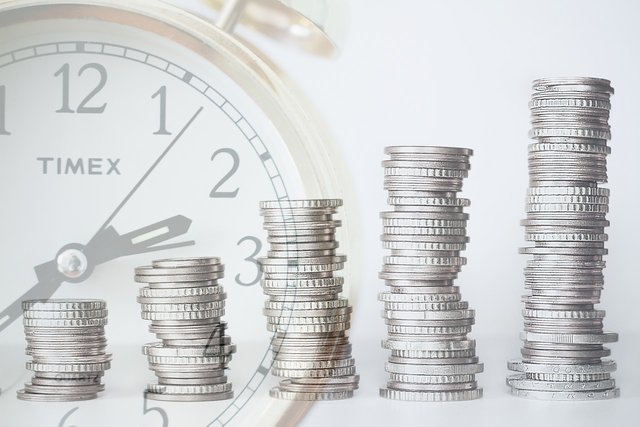
[Image Source](Image by Rilsonav from Pixabay)
This can be considered as Part 2 of my earlier article which talked about the Indian Economy suffering an economic crisis. To understand the actual plight of the Indian Economy, please read through that article here.
Government’s Budget for the Indian Economy
In the month of February, the Indian Finance Minister, Nirmala Sitharaman, announced the Budget. The Budget is a framework on how the Government plans to manage the Indian Economy as a whole. It highlights the intent of the Government on what sectors, and constituents of the Economy it would support through allocation of funds, and through measures like tax concessions and other schemes.
It details a list of plans and measures of the Government, to improve the Economy, further it’s progress after an analysis of the economy in the current year period. The goal of the Government will be visible, besides it’s strategy on how it would earn more revenue receipts, that would automatically come when the economy does well with abundant earnings.
The low demand and economic activity situation had to be dealt with
This time around, India needed a budget that would give an immediate boost to it’s economy, given India had experienced low GDP growth last quarter of 4.5%. Economic activity is low with decline in manufacturing, production activities. Private investment has come to a standstill. Both urban and rural India are facing high levels of unemployment. Rural India is under severe distress with poorer sections of farmers and workers of the other segments of rural India (weavers, handloom and handicraft workers, small vendors, small scale industries, fisherman and more) having got poorer.
Distressed rural economy needed a boost
The major problem the Budget had to address immediately according to many economists was to address the low demand problem by boosting consumption of the consumers, particularly the farmers and other rural population who are consuming very less with decline in their purchasing power. There were expectations that the Government would take steps that would immediately in the short term drive up the demand of the rural population, by infusing money directly onto them, thereby increasing their purchasing capacity to consume more goods.
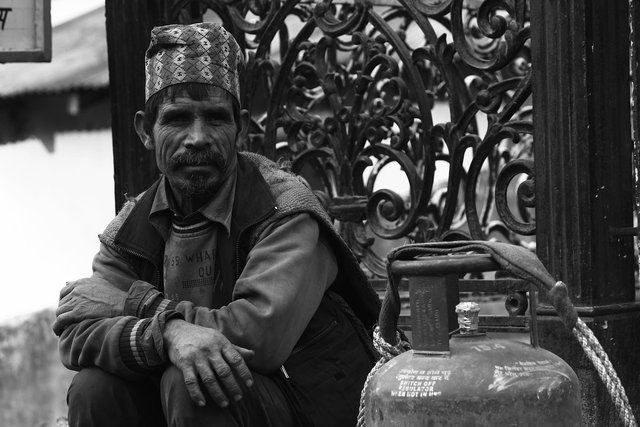
Ready-made schemes in place to give cash and jobs to Rural India
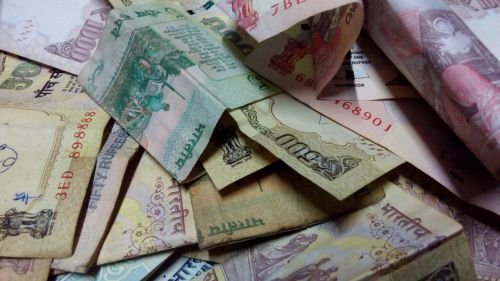
Government could have infused money into rural India through schemes like PM Kisan and NREGA - National Rural Employment Guarantee Act. PM Kisan is a provision where the Government gives Rs 6000 to poor farmers per year in installments and NREGA guarantees to provide 100 days of work to the rural unemployed in unskilled jobs.
For other workers in the rural sector, direct-cash transfers should have been provided. Further in the agricultural sector, farmers could have got cash instead of subsidies. The aim here is to boost rural consumption, as their ability to purchase even basic goods for a decent living condition is non-existent now.
The Rural segment and farmers would have immediately spent money on consuming basic goods, that would have created a positive effect on private investment, since where there is demand, there will be more economic activity to produce goods to meet that demand.
However, instead of infusing more money into these schemes, the Government has reduced its allocation to NREGA, by 10,000 crores this time!!
Reference article - https://thewire.in/economy/on-income-tax-agriculture-and-education-budget-2020-mostly-disappoints
Routine stance of the Government of neglecting Rural Economy
As usual the Government ignores the rural sector and the rural economy comprising of farmers, weavers, handloom, khadhi workers, fishermen, small vendors, hawkers, artisans etc. This is the case even though now the economy would have got a boost when the rural segment is revived with the majority of India’s population getting employment and much needed incomes to spend on basic goods. However, in the current budget, the rural sector’s budget allocation is only 2.5% more than what was allocated last year.
Last year 30% of funds allocated in the Budget for PM Kisan scheme was unspent. Even though the Government has promised to double the incomes of farmers by 2022, it does not look feasible considering Government is doing very little for farmers, even though their condition is tragic with lakhs of farmers having commited suicide not able to make ends meet and acquiring the ability to pay back loan amounts.
Corporate tax concession failed to revive private Corporate investment
Government tried boosting Corporate investment in the economy by slashing Corporate taxes last year in September from 30% to 22% . However, since there is such a severe demand crunch, Corporates did not use their saved money to invest, or expand their operations.
They probably used that money to pay back their bad debts so their balance sheet looks good, increase salaries of executives or provide dividend bonus to shareholders . Whatever the Corporates did with their tax saved money, none of it added value to the economy, condition remains the same with an investment standstill, stagnation in economic activity, high unemployment etc.
In contrast if the Government had provided this concession to the rural sector - infusing money into the hands of the farmers and other rural sectors and rural population, that money would have been readily spent by that population, resulting in revival of demand in the economy for economic activity to follow suit in the near term itself.
Middle class segment and Corporates not contributing to Economy

Government instead thinks only of the Corporate sector and the middle to upper class salary earners, looking up to this small segment of population to provide employment and consume goods for prolonging the country's decent GDP growth. However, it is clear the Corporate sector is not willing to invest, the middle class are not interested in consuming more, in fact they are consuming less of luxurious goods, as it’s a recession time, with the economy experiencing low growth and a clear slowdown.
Government not acknowledging the plight of the Indian Economy
Such being the case, it was surprising that the Finance Minister, Nirmala Sitaram in her long budget speech of 2 hrs and 40 mins, did not make any mention of the Indian Economy experiencing a slowdown and going through a low growth situation.
At a time when investor confidence seems battered, Government should have made clear the actual plight of the economy so that we can atleast have confidence that the Government has evaluated the plight of the economy thoroughly to come up with measures required to address the issues ailing the Indian Economy. Only if the diagnosis of the economic situation is right, can budget measures be taken accordingly to sort out the economic situation.
Reference article - https://thewire.in/economy/budget-2020-wrong-deepak-nayyar
Government favours Capital Intensive investment that give results in the long term
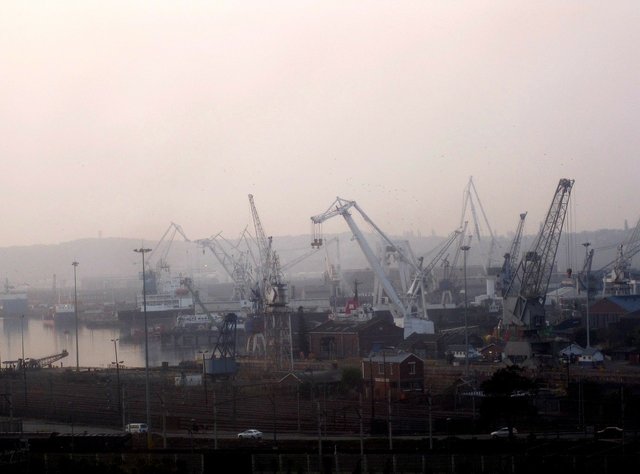
Image Source
The Budget allocates trillions of money for mega infrastructure projects under the National Infrastructure Pipeline (NIP). These will include 6500 projects requiring 103 trillion rupees of investment on big deal projects across segments on highways, airports, affordable housing, metros, railways and infrastructure for logistics and warehousing, irrigation, port development etc.
Even though the idea is to revive Industrial production and construction activities and provide employment to crores, these big deal projects have a long gestation period and require huge capital expenditure by the Government till 2025. In return, however, the economy would experience a boost only in a longer time frame of 3-5 years, when one can expect the money flow to trickle down into the economy. In the short term, this measure would fail to boost the economy and currently, an immediate boost is needed with the rural economy and the poor being in severe distress.
Reference article - https://www.business-standard.com/budget/article/budget-2020-rs-103-lakh-cr-infrastructure-projects-launched-under-nip-120020100523_1.html
Government continuing the trend of pursuing unsustainable development
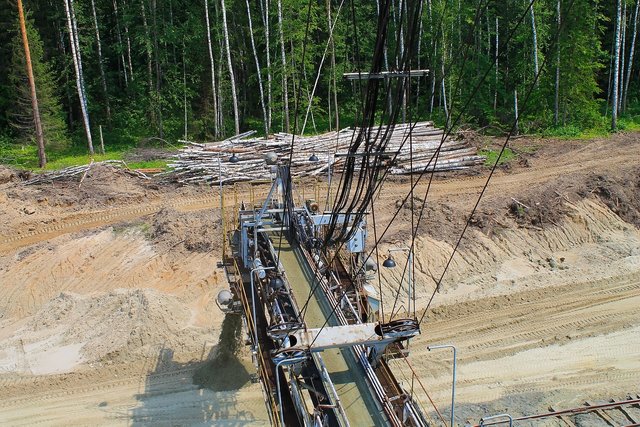
One can imagine taking into account the general attitude and approach of the Government, economic development through their mega projects would involve environmental degradation - construct highways by cutting out trees, build dams and destroy free flowing rivers, build solar energy plants displacing and taking away lands from farmers and peasants then claim India is marching towards renewable energy, taking credit for it, focusing on building Smart Cities that won’t benefit the rural segments of farmers and many other segments of population who are severely distressed. These projects will march on pursuing unsustainable development, destruction of the environment, exploitation of the farmers, peasants by taking away their lands etc. Further, they will mostly be focused on Urban India which is already over populated and developed.
No focus on development of Rural India with existing provisions in place
Instead of allocating trillions of money in National Infrastructure Pipeline (NIP) , if some portion of that money would have been put on NREGA to develop basic infrastructure like roads, health care and educational facilities in rural areas which lack them, using the labour services of the unemployed rural population, the economy would have got a immediate kick start.
Reason for this acute rural distress is the Government’s measures in the first place
It has to be noted that the rural economy is experiencing this distress because of the current Modi lead BJP Government’s measures of Demonetisation and introduction of GST tax system done a few years ago.
Small businesses and entities could no longer function experiencing a liquidity crunch when the old 500 and 2000 Rs notes were not accepted as legal tender any longer by the Indian economic system immediately post demonetisation. The destroyed plight of small entities, and neglected sectors are now one of the prime reasons for India’s economic crisis situation accompanied by Global Economic slowdown.
Government’s unlikely to earn revenue through taxes this coming year too!!
On the revenue side, the Government looks forward to earn more through tax collection. However, if the GDP growth remains sluggish like in the current conditions - with stagnation in industrial production activities, low growth in agricultural sector, no corporate private investment taking place and high unemployment, Government would not be able to earn revenues and would experience revenue shortfalls like it has this year. This will result in a fiscal deficit. Already to keep the fiscal deficit in control the Government has limited spending, mostly by not providing concessions and money allocation to distressed farming and rural sectors.
Discouraging savings habit in the salaried class of people
Even the salaried and tax paying class, are not benefited much by the recent budget, as this budget, taxes the shareholder on dividends this time with the Corporate’s exempted from bearing the Dividend Distribution Tax. This discourages this class, of the more well to do people from saving and putting their money on instruments like insurance, fixed deposit etc .
Now, if the Government expects, this class of people to demand luxurious goods like cars and raise the GDP of the country, it’s unlikely as well, although unlike the rural segment , they have purchasing power to continue consuming basic goods. However, even educated youth are not finding employment now, which is worrying.
No measures to improve the health of the India Banking System
The Budget had no measures to strengthen the banking sector, which is stifled with problems of non-performing assets(NPAs). The public sector banks have a lot of unrecovered loans that are written off as NPAs, with Corporates and high end individuals not able to pay back their loan amounts.
So, a recapitalisation of banks is required to ease their financial distress, along with sound measures to improve their Governance mechanisms.
When the banking sector faces a resource crunch, it will affect depositor’s savings putting even their principal deposited amount at risk of non-recovery. Further the ability of the bank to lend and provide good interest rates for deposited money gets affected. Banks, currently don’t want to lend in fear of acquiring NPA’s, especially in current prevailing conditions when investor sentiment and confidence is at a low.
Government is ruthlessly fine with destroying the telecom industry

[Source](Image by Rilsonav from Pixabay)
Although practically, the primary source of revenue for the Government should be in earnings they get as taxes from Corporates and individuals out of their profits, this Government plans to get funds through other means from telecom companies who are to pay crores of rupees as dues and penalties as their adjusted gross revenue (AGR) settlement with the Government. This will result in the death of telecom companies, particularly Vodafone India . Government is not interested in giving relief to telecom companies that are in a crisis facing bankruptcy but are bent on pressuring the companies to pay up crores of rupees. This too, at a time when the Indian Economy is not growing but is bending down into the pits of recession,
Reference article - https://www.dw.com/en/india-telecom-crisis-vodafone-struggles-to-survive/a-52434251
Indian Rupee should have been devalued to discourage imports
On export-import measures, the Budget has raised import duties on products like - walnut, footwear, toys, electronic goods as measures to curb imports and encourage exports. However, the Indian rupee is overvalued and it would have been better to have depreciated Rupee to dollar, this would have encouraged exports and discouraged imports automatically, as more rupee is paid for dollar worth of goods.
Government is tight over spending money to maintain fiscal Deficit within limits
The Government prides itself on keeping it’s fiscal deficit in control within the limits of 3.5% this year. However, to keep to this target level, Government has refrained from printing notes this time. As mentioned , the Government has not earned enough tax revenues this time and the measure of providing tax concessions to the Corporate sector lead to a shortfall of 4 lakh crores of revenue.
However, Government was able to contain its fiscal deficit within reasonable limits because it took a surplus from RBI’s reserves to the amount of Rs 1.76 lakh crore which is a huge amount. This act is criticized, as it looks like the Government has removed the autonomy and independence of the RBI, interfering with its management and forcibly taking money out of the Central Bank of India to manage the finance mess the Government seems not competent to manage.
Reference article for further details -
This year, if the economic situation does not improve, and the Government does not earn expected tax revenue receipts, then in all likelihood the fiscal deficit would increase.
Instead, of maintaining this fiscal discipline stance, if the Government had worried about alleviating the rural distress and providing money to them by printing notes, they would have got returns on investment, with rural population spending money and economic activity kick starting, which would have wheeled the other sectors of the Indian Economy.
Concluding Words
Overall, this budget was a disappointment, the markets post Budget session reacted with fall in share prices as well. By all probability the base foundation of a recession is already in place, and it can only get worse or at the very best stay the same.
Reference article - https://www.deccanchronicle.com/nation/politics/030220/pressure-builds-on-pm-modi-after-budget-fails-to-excite-says-experts.html



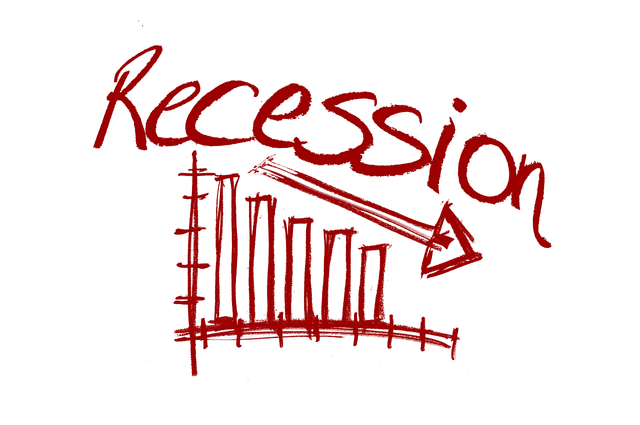



Hi appreciated @mintymile.
I was caught reading from the first paragraph.
But I must be honest with you: I did not read the entire text. It is too extensive.
On the other hand I value your effort and the fact that you have chosen to publish this product of your work in our hive.
Thanks for sharing.
Your friend, Juan.
Downvoting a post can decrease pending rewards and make it less visible. Common reasons:
Submit
It looks like politics for every underdeveloped country is the same as funds allocated for the growth of the economy is usually mismanaged by political leaders at the end of the day.
Downvoting a post can decrease pending rewards and make it less visible. Common reasons:
Submit
Boosting corporate investments seldom saves the poor from starving. And dispensing the money among the poor has only a short time effect. Maybe governments should do both at the same time. (Both leftist and right wing methods.)
Downvoting a post can decrease pending rewards and make it less visible. Common reasons:
Submit
Wow. That's a veryyyy long post. I'm very curious if many people will read it all. Didnt you consider posting something shorter ? Something that can be read within 10min max?
Upvote on the way
Downvoting a post can decrease pending rewards and make it less visible. Common reasons:
Submit
Thankyou for upvote and reesteeming(: ... yup I overdo economy topics, especially since I am not having much expertise on it, I have to shorten this for sure, eventhough it's a topic that needs deep delving.
But can you imagine the Budget annoucement then... FInance Minister kept the session for 2 hrs and 40 minutes!!! ...poor journalists and economists had to listeen to her for so long, even though nothing much was there in it!!
Thanks again!!!
Yours,
Mintymile
Downvoting a post can decrease pending rewards and make it less visible. Common reasons:
Submit
Omg. What a long post @mintymile :)
I already bookmarked it and will read it later on, once I have some more free time lol
Yours
Piotr
Downvoting a post can decrease pending rewards and make it less visible. Common reasons:
Submit
You know a lot about economics. It really took me a while to understand, but it seems that all governments, no matter what country they're from, have similar problems.
It is unfortunate that governments always use resources to exploit areas without considering the environmental consequences. Also, it's the same here.
The deficit in the agricultural area is strong.
What would happen in the country (or in all countries) if no one wanted to cultivate, sow and harvest?
Could we survive?
Thanks for sharing :D
PS: How are your cats?
Downvoting a post can decrease pending rewards and make it less visible. Common reasons:
Submit